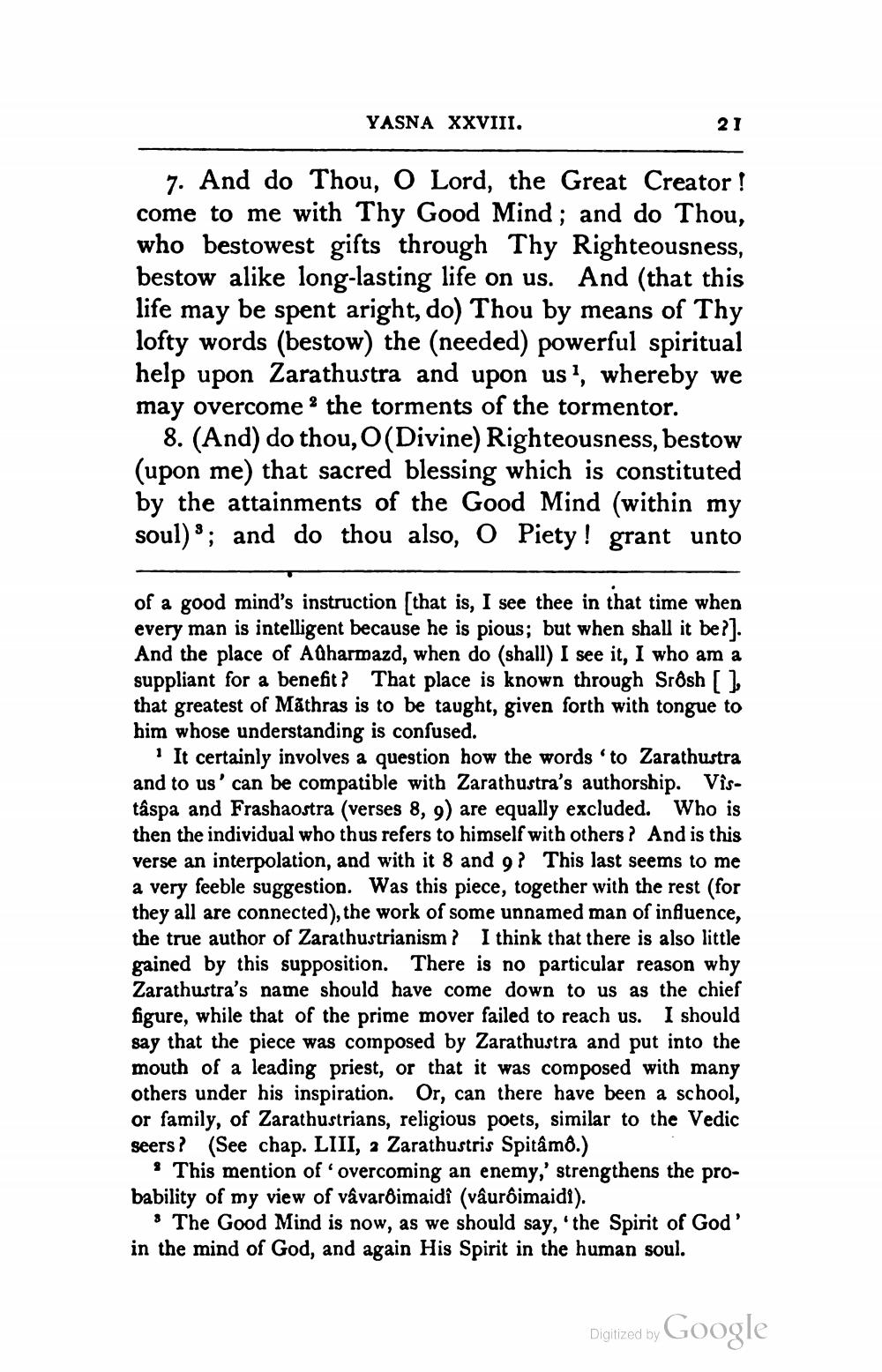________________
YASNA XXVIII.
21
7. And do Thou, O Lord, the Great Creator ! come to me with Thy Good Mind; and do Thou, who bestowest gifts through Thy Righteousness, bestow alike long-lasting life on us. And that this life may be spent aright, do) Thou by means of Thy lofty words (bestow) the (needed) powerful spiritual help upon Zarathustra and upon us ', whereby we may overcome ? the torments of the tormentor.
8. (And) do thou, O(Divine) Righteousness, bestow (upon me) that sacred blessing which is constituted by the attainments of the Good Mind (within my soul) ; and do thou also, O Piety! grant unto
of a good mind's instruction (that is, I see thee in that time when every man is intelligent because he is pious; but when shall it be?]. And the place of Adharmazd, when do (shall) I see it, I who am a suppliant for a benefit? That place is known through Srösh that greatest of Mathras is to be taught, given forth with tongue to him whose understanding is confused.
" It certainly involves a question how the words 'to Zarathustra and to us' can be compatible with Zarathustra's authorship. Vistâspa and Frashaostra (verses 8, 9) are equally excluded. Who is then the individual who thus refers to himself with others? And is this verse an interpolation, and with it 8 and 97 This last seems to me a very feeble suggestion. Was this piece, together with the rest (for they all are connected), the work of some unnamed man of influence, the true author of Zarathustrianism? I think that there is also little gained by this supposition. There is no particular reason why Zarathustra's name should have come down to us as the chief figure, while that of the prime mover failed to reach us. I should say that the piece was composed by Zarathustra and put into the mouth of a leading priest, or that it was composed with many others under his inspiration. Or, can there have been a school, or family, of Zarathustrians, religious poets, similar to the Vedic seers? (See chap. LIII, a Zarathustris Spitamo.)
* This mention of overcoming an enemy,' strengthens the probability of my view of vâvarðimaidi (vâuroimaidi).
3 The Good Mind is now, as we should say, 'the Spirit of God' in the mind of God, and again His Spirit in the human soul.
A
Digitized by Google




